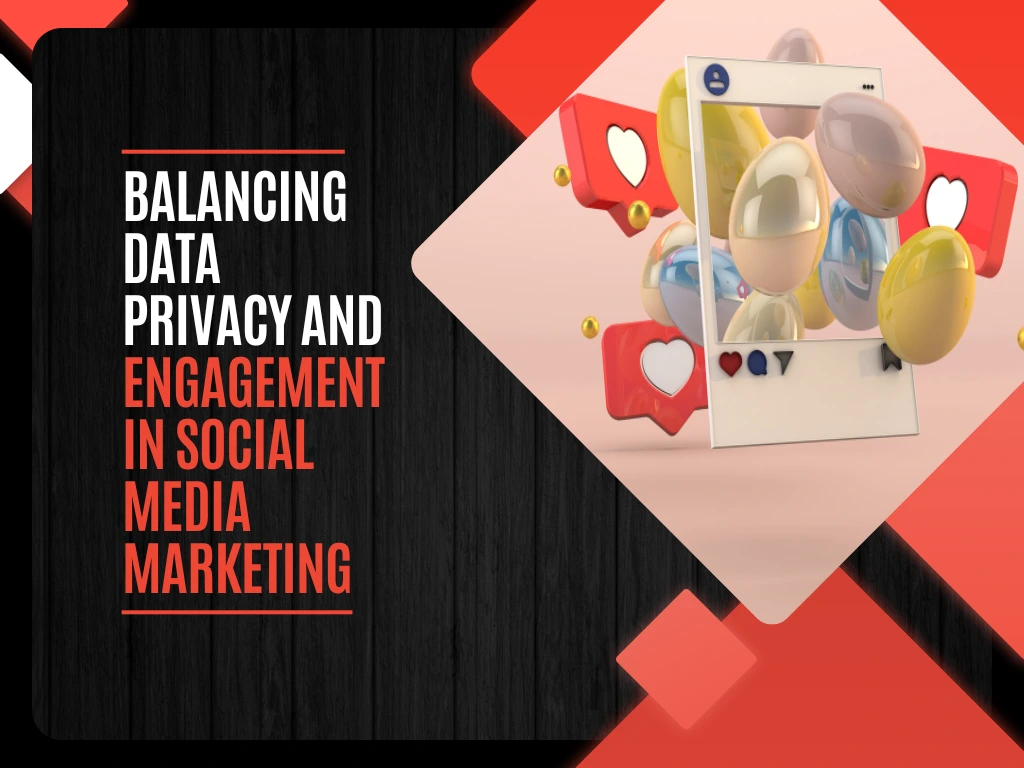Balancing Data Privacy and Engagement in Social Media Marketing
Learn how to balance data privacy with customer engagement in social media marketing for trust-building and effective strategies.

Social media marketing has become an essential part of most marketing strategies today. Platforms like Facebook, Instagram, and X allow brands to directly engage with customers and build communities. However, with the rise of social media comes increased concerns around data privacy and how user information is collected and used for marketing purposes. This article explores how brands can balance data privacy and engagement as they develop their social media marketing campaigns.

Respecting User Privacy
While social platforms make it easy to target users based on their personal data like age, location, and interests, brands must be careful not to cross the line when leveraging this information. Here are some tips for respecting user privacy:
- Be transparent about how you collect and use data. Clearly communicate this in your privacy policy.
- Only collect the minimum amount of personal data needed. Don’t gather unnecessary information.
- Allow users to opt-out of data collection for marketing purposes. Provide clear opt-out instructions.
- Get consent before engaging in individualized targeting based on sensitive information like health conditions or political views.
- Use aggregated data rather than individual profiles when possible. This makes it harder to identify specific users.
- Don’t store user data longer than necessary. Develop a data retention policy.
Following these principles helps demonstrate your respect for your audience’s privacy. This builds trust with users who will reward you with greater engagement.
Crafting Privacy-Conscious Campaigns
You can take a privacy-first approach to your social media campaigns while still driving engagement. Here are some examples:
- Spotlight influencers who have opted into partnerships instead of trying to collect fan data.
- Create polls users can voluntarily participate in without handing over personal info.
- Boost posts based on social media platform demographics rather than custom audiences from contact lists.
- Set up automatic localized targeting to reach people in specific cities or countries.
- Run video views or website clicks objectives optimizing for actions rather than personal data collection.
- Develop unique hashtags supporters can voluntarily rally behind and share.
Each of these tactics allows you to ethically market to interested users who want to engage with your brand.
Being Transparent
Transparency is key to balancing privacy and engagement in social media marketing. Make sure you:
- Disclose paid partnerships and sponsorships per platform guidelines and FTC regulations.
- Clearly indicate when you collect information like emails for contests or promotions.
- Are upfront about the types of data you gather directly or through tracking tools like pixels and cookies.
- Have easily accessible privacy and data usage policies.
- Offer opt-ins rather than relying on pre-checked boxes or making users opt-out.
- Let users know how to remove digital information if they are concerned about data misuse.
When you are open about your data practices, users can make informed decisions about their privacy. This builds goodwill and keeps your most engaged supporters active.
Developing a successful social media marketing strategy means deeply engaging your audience while also respecting their privacy. Follow the guidance in this article to help strike that balance. With a thoughtful approach, your brand can become a social media leader that puts user trust first.



